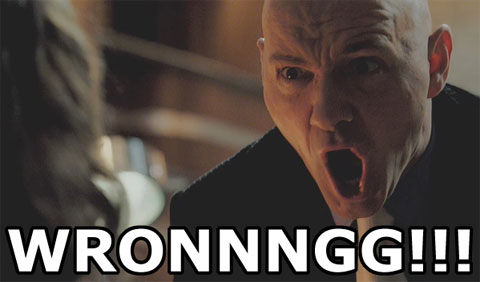DesertFox- wrote:
From 1792 up until World War II*. It always was a means to protect the country, not fight against the government.
DesertFox- wrote:
Sorry to inform you, but the Founding Fathers were far closer to pragmatic idealists than paranoid gun-polishers. A young, poor nation didn't want to have an expensive army for defense when you could levy a militia, and if they bring their own guns---all the better! Read some correspondence of Jefferson, Adams, and the like. They didn't expect the government they created to become jackbooted thugs, but they did want to preserve it from outside forces.
The second amendment has nothing to do with gun polishing and really, despite the word "milita" in the amendment didn't have a lot to do with militias as you see them. An editorial I read recently explains it perfectly (if you can be bothered to read all of it, which you should because it's the correct point of view and you might learn something and stop making an ass out of yourself and shitting all over your own heritage and rights passed down to you by men who were a lot smarter and wiser than you and tended not to use enormous run on sentences like I do):
A Jeffersonian Perspective wrote:
"A well regulated Militia, being necessary to the security of a free State, the right of the people to keep and bear Arms, shall not be infringed."
But in speaking of "a well regulated Militia," the Amendment merely states a reason for recognizing the people's right to be armed, not necessarily a purpose for and limitation on that right. An armed citizenry was recognized as advantageous to a free State. If the Amendment were meant merely to guarantee a State the right to maintain a militia, the last half could just as easily have stated "the right of any State of this Union to permit their citizens to keep and bear arms shall not be infringed."
But this is not a State's right; it is a People's Right which they may claim in both their collective and individual capacities. In an age when the sense of community is strained and in many cases absent, the idea of citizens viewing themselves as a part of the people may seem out of place. But our founding documents often speak of actions and rights that belong to the people collectively. The Declaration of Independence, for example, speaks of the right that the people have to "alter or abolish" a government that becomes destructive of its proper ends, namely, securing their inalienable rights. The 1st Amendment to the Constitution declares that the people have the right "peaceably to assemble, and to petition the government for a redress of grievances." In each of these cases it is a people's right, but the exercise of that right requires action by individuals composing the people. So with the right to keep and bear arms. It is a right of the people, but it is a right that an individual must be permitted to exercise in order for it to be effective.
If the 2nd Amendment were read as merely granting states the right to maintain a militia, it would contradict Art. I, Section 10, Clause 3 of the U.S. Constitution, which forbids the states from keeping "troops, or ships of war in time of peace," "without the consent of the Congress." But the right guaranteed by the 2nd Amendment goes beyond merely what is necessary for a State to form a militia when needed. As a People's Right, necessary aspects of it exist regardless of whether Congress gives its consent for states to keep troops in time of peace or not. Congress could prevent a state from forming a militia, but this would not affect the right of the people to remain armed, and to be ready whenever the State called upon them to join a militia, or to protect their liberties in other ways contemplated by the Founders.
The 2nd Amendment provides an interesting insight into the Founding Fathers' attitude toward government. The new nation had recently freed itself from a government controlled by others, not themselves. They saw themselves as a people, and government as a separate, sometimes despotic and oppressive entity. If they could not have arms, they would be helpless before this other entity; they would be like slaves. They also feared that despotic forces might usurp whatever government they established, and they would be at the mercy of those forces. This, after all, was a new, untried form of government, and many on both sides of the Atlantic expected it to fail. Hence, the people retaining arms was a guarantee of their liberty.
The first amendment is the first because it holds the most important ideals that the founding fathers had. The second amendment is there as a means to the people to protect the first, and subsequent amendments, and all of the rights and freedoms therein, from all enemies foreign AND
DOMESTIC.




